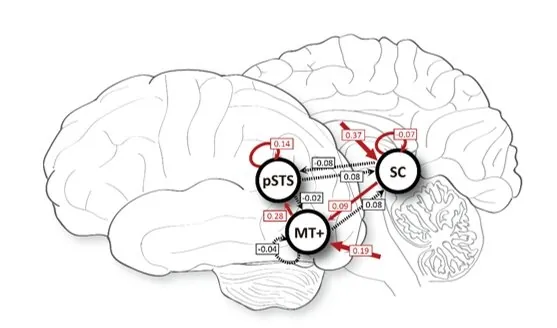
Major Medical Journal Retracts Article Linking Unexpected Weight Loss to Cancer - A Game-Changer in Patient Care?
2024-11-20
Author: Amelia
Introduction
In a significant turn of events, the British Medical Journal (BMJ) has officially retracted an article that previously examined the implications of unexpected weight loss as a potential warning sign of cancer. The original paper, published on August 13, 2020, was intended to shed light on when patients experiencing unexplained weight loss should be prioritized for cancer investigations. However, upon further scrutiny, the authors discovered critical errors that could drastically impact patient care protocols.
Background of the Study
Led by Brian D. Nicholson, an associate professor at the University of Oxford’s Nuffield Department of Primary Care Health Sciences, the study initially analyzed electronic health records to identify patients diagnosed with cancer within six months following a report of unexplained weight loss. During attempts to validate their findings with a new dataset, the researchers stumbled upon discrepancies that they initially struggled to explain. Nicholson remarked, 'For many months, we tried hard to understand what could have caused these differences.'
Findings of the Investigation
The investigation revealed an unanticipated selection bias due to a coding error in the healthcare records. Some patients who should have been included in the study were excluded because their records contained irrelevant codes that did not pertain to weight loss. This oversight led to a significant underrepresentation of actual cancer diagnoses among patients with unexplained weight loss, skewing the study’s conclusions.
BMJ's Response and Updated Research
On March 25, the BMJ released an expression of concern, acknowledging the authors’ discovery of errors and the potential for skewed results. Following a thorough review and collaboration between the authors and the BMJ, an updated version of the research was published, leading the authors to express their relief. Nicholson emphasized, 'We hope these results will be taken into account when our national guidelines, and other international clinical guidelines, are updated about who should be urgently referred for cancer investigation.'
Impact of the Updated Findings
The original article analyzed data from nearly 64,000 patients between 2000 and 2012, revealing a mere 1.4% cancer diagnosis rate. The revised analysis, now incorporating records from roughly 326,000 patients from 2000 to 2019, showed a much higher cancer diagnosis rate of 4.8%. More importantly, the new findings indicated that all men over 50 and women over 60, as well as younger patients with additional symptoms, should undergo further investigation when presenting with unexpected weight loss.
Regulatory Response
In light of these changes, the BMJ has proactively informed those who cited the original work and has reached out to the UK's National Institute for Health and Care Excellence (NICE) for guidance on how the findings may influence clinical recommendations. As of now, NICE has not provided public commentary on whether existing guidelines need adjustments.
Conclusions and Future Implications
The retracted article has already garnered attention, with 15 citations noted in academic databases, although the revised results have yet to gain similar visibility. As health professionals and researchers await updates from NICE, this development raises critical questions about the integrity of clinical research and its profound impact on patient care.
As the medical community grapples with the implications of this retraction, one can only wonder—how many lives could be saved with the correct interpretation of these findings? Stay tuned as we follow this evolving story!









 Brasil (PT)
Brasil (PT)
 Canada (EN)
Canada (EN)
 Chile (ES)
Chile (ES)
 España (ES)
España (ES)
 France (FR)
France (FR)
 Hong Kong (EN)
Hong Kong (EN)
 Italia (IT)
Italia (IT)
 日本 (JA)
日本 (JA)
 Magyarország (HU)
Magyarország (HU)
 Norge (NO)
Norge (NO)
 Polska (PL)
Polska (PL)
 Schweiz (DE)
Schweiz (DE)
 Singapore (EN)
Singapore (EN)
 Sverige (SV)
Sverige (SV)
 Suomi (FI)
Suomi (FI)
 Türkiye (TR)
Türkiye (TR)